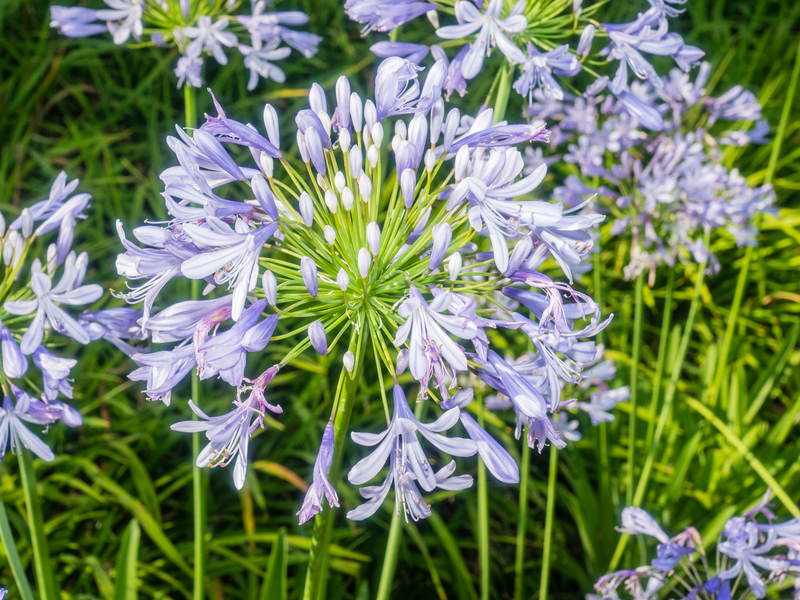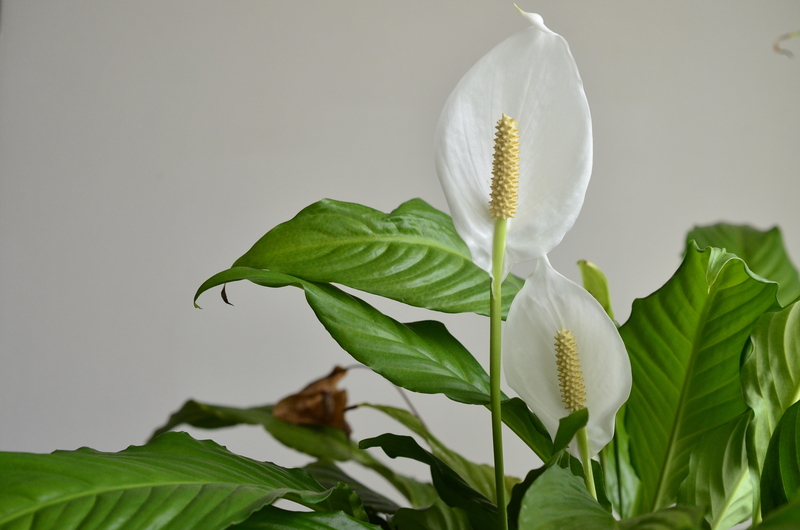Gardens: Small Spaces Making a Big Climate Difference
Posted on 24/09/2025
Gardens: Small Spaces Making a Big Climate Difference
In a world increasingly impacted by climate change, the humble garden is emerging as a powerful tool in the fight for a healthier, more resilient planet. Gardens, no matter how small, are uniquely positioned to contribute to positive environmental change. Whether you have a balcony, a front yard, or just a collection of pots on your windowsill, discover how small garden spaces can make a profound climate difference.
Why Every Garden Matters in the Climate Crisis
We often think that real environmental impact requires vast landscapes or governmental change. However, urban and suburban gardens are quiet revolutionaries--tiny pockets of biodiversity solving some of the planet's biggest challenges. These green spaces are essential not just for beauty, but for their ability to:
- Reduce urban heat through cooling and shade
- Absorb carbon dioxide (CO2) from the atmosphere
- Filter and clean urban air
- Support wildlife like pollinators and birds
- Slow rainwater run-off and prevent flooding
- Provide opportunities for food production close to home
This article explores how gardens, even those limited by space, are making a significant environmental impact. We'll discuss strategies to maximize the climate benefits of small gardens, and inspire you to transform your own little patch into a climate hero.

How Small Gardens Make a Big Climate Impact
1. Urban Cooling and the Fight Against the Heat Island Effect
Concrete and asphalt absorb heat, creating scorching "urban heat islands” in cities. This drives up energy consumption (think air conditioning), increases pollution, and even worsens health problems. Small gardens act as natural air-conditioners, shading the ground and releasing moisture through evapotranspiration. Just a handful of well-placed plants can lower the temperature around your home, cutting carbon emissions and cooling your neighborhood.
Practical Tip:
- Plant leafy shrubs or climbers on sunny walls to reduce indoor temperatures.
- Green roofs and balcony gardens are perfect for maximizing cooler surfaces in limited space.
2. Carbon Sequestration: Storing CO2 in Your Backyard
Plants absorb carbon dioxide from the atmosphere and store it in roots, stems, and leaves--a process called carbon sequestration. While it may seem insignificant, collectively, urban and suburban gardens lock away millions of tons of CO2 each year.
- Even lawn grass, if managed organically, aids carbon storage, but trees, shrubs, and dense perennials lock away even more.
- Native plants with deep roots can sequester carbon more effectively and require less maintenance.
3. Combatting Air Pollution and Improving Air Quality
Many popular garden plants filter particulate matter and chemical pollutants from the air. They also generate oxygen. A diverse, densely-planted garden, even in a few square meters, can measurably improve immediate air quality.
Pollution-Busting Plants:
- Spider plants and ferns indoors and out
- Evergreen shrubs like boxwood and holly
- Trees such as birch, maple, and rowan
Encouraging Urban Biodiversity in Small Spaces
Wildlife Havens: Small Gardens as Biodiversity Hotspots
Urban sprawl and intensive agriculture are major threats to global biodiversity. Yet, your garden can conserve native plants, give shelter to insects and birds, and create critical "stepping stones" in fragmented habitats.
- Create a mini wildflower meadow with native species to attract bees and butterflies.
- Install bird baths, insect hotels, or log piles for habitat and nesting sites.
- Allow a corner of your space to go a little wild--nature will reward you!
Boosting Pollinators for Global Food Security
Bees, butterflies, and other pollinators are in decline worldwide due to habitat loss and chemicals. Even tiny gardens planted with pollinator-friendly blooms can become vital lifelines for these species. By supporting urban pollinators, your garden indirectly helps farmers and natural habitats far beyond your neighborhood.
Rainwater Absorption and Flood Control
Impermeable surfaces cause rainwater to run off, leading to flash floods. Gardens act like sponges--soil and roots absorb water, preventing runoff and recharging groundwater supplies.
Small Garden Swales and Rain Gardens:
- Install permeable paving or replace concrete with gravel or bark chips.
- Create a shallow depression planted with moisture-loving plants to capture rainy overflows.
Small Garden Food Production: Climate Benefits on Your Plate
Reducing Food Miles and Emissions
Growing food at home--whether salad greens in containers or fruit trees along a wall--means:
- Reduced reliance on factories and long-distance transport
- Lower packaging and refrigeration needs
- Greater access to fresh, organic produce
By cultivating even a few vegetables, herbs, or berries, your urban or suburban garden slashes your personal carbon footprint and supports a more sustainable food supply chain.
Building Community and Climate Resilience
Small gardens offer more than environmental benefits; they nurture resilient communities, too. Sharing seeds, surplus harvest, or gardening tips can foster local networks. Community gardens, window boxes, and pocket parks all play a vital role in:
- Food security during disruptions
- Mental and physical well-being for residents
- Teaching sustainability and climate literacy
Making the Most of Small Spaces: Design Tips for Climate Impact
Maximize Vertical and Layered Growth
- Use walls, fences, and railings for climbers, espaliered trees, and hanging baskets.
- Mix groundcovers, mid-level and taller plants to capture more carbon and offer layered wildlife habitats.
- Install window boxes and stackable planters for extra space-saving greenery.
Choose Native and Drought-Resistant Plants
Native plants require less water, are adapted to local soils, and support more local wildlife. Where possible, pick drought-tolerant varieties to conserve water and add resilience to your garden--especially as climate patterns shift.
Embrace Organic Gardening and Soil Health
- Compost kitchen waste to enrich your soil and reduce methane emissions from landfill.
- Swap chemical fertilizers for organic mulch and natural pest control--good for beneficial insects and the planet.
- Minimal tilling improves soil structure and maximizes carbon storage.
Gardens in Unexpected Spaces: Expanding the Small-Space Revolution
Don't Have a Yard or Balcony? No Problem!
You don't need traditional land to make a climate difference. There's a surging interest in:
- Community gardens on vacant lots
- Tower planters and hydroponics inside apartments
- "Guerrilla gardening" to green neglected verges, alleyways, and rooftops
- Workplace and school gardens for urban greening
Case Study: Small Gardens, Big Results
In London, home to over 3.5 million individual gardens, studies estimate these private green spaces store hundreds of thousands of tons of carbon. In Melbourne, Australia, "pop-up" neighborhood parks built on old parking lots reduce summer temperatures by up to 5?C. Even micro-gardens on balconies have doubled wild bee counts in some cities.
Small Gardens: Simple Steps, Large Benefits
Here are some easy, actionable ideas for making your own space a climate-friendly garden:
- Plant at least one tree or large shrub--maximum carbon capture and cooling for your area.
- Replace lawn or unused paving with layered perennials, native wildflowers, or groundcovers.
- Choose a mix of flowering plants to support pollinators and season-long color.
- Start a compost bin or worm farm--cuts waste and boosts soil health.
- Encourage neighbors, schools, or workplaces to join in and multiply your impact.

Addressing Common Challenges in Small-Space Gardening
This environmental revolution isn't without hurdles. Small space gardeners often face:
- Lack of sunlight or limited growing area
- Water access and drought concerns
- Community regulations and restrictions
- Pest and disease pressures in dense urban areas
The solutions? Get creative: focus on shade-tolerant species, water-wise gardening practices, vertical design, and organic problem-solving. Your local garden center or extension service can offer free advice tailored to your region.
Conclusion: Your Garden, Our Climate
As climate challenges mount, the role of gardens--especially small ones--has never been more important. While policy and technology matter, personal action is powerful. Your balcony, backyard, or window box can cool cities, clean our air, conserve water, and offer safe haven to wildlife. Shared and individual green spaces stitch together a living network that delivers real, lasting climate benefits worldwide.
Never underestimate the impact of a small space garden. Each window box, tiny lawn, and rooftop sanctuary is a bold act of hope--a small patch making a big climate difference. Start today, share your story, and inspire others to join the movement for greener, cooler, and more resilient cities.
Further Reading & Resources
- Royal Horticultural Society: The Climate-Friendly Garden
- EPA: Rain Gardens
- Garden Organic: Making Your Garden Sustainable
- Pollinator Partnership
Turn your small garden into a climate powerhouse today--let your greenery help grow a better future for us all.
Latest Posts
Must-Have Gardening Gear for Nature Lovers
Gardens: Small Spaces Making a Big Climate Difference
Tips for Designing an Interactive Garden for Kids
Ultimate Strategies for Preventing Severe Weather Damage in Gardens
From Concept to Comfort: Building Exceptional Garden Seating

